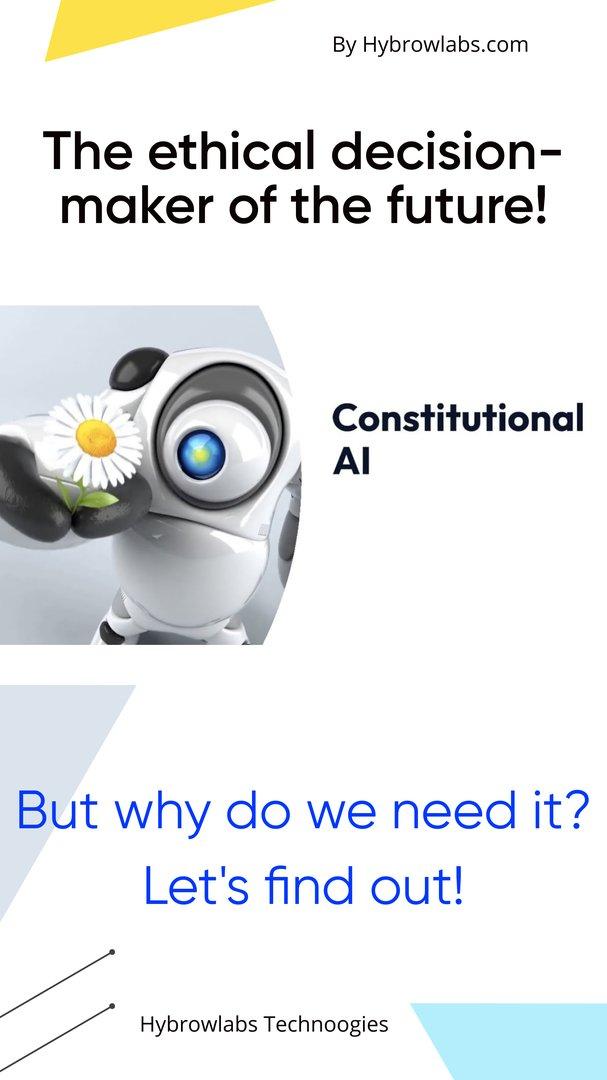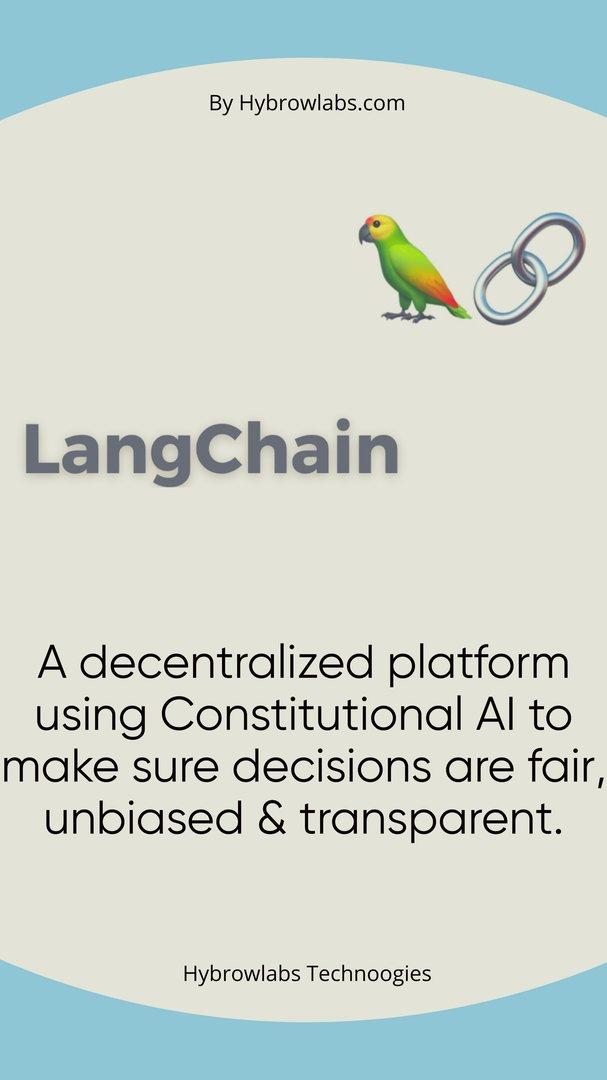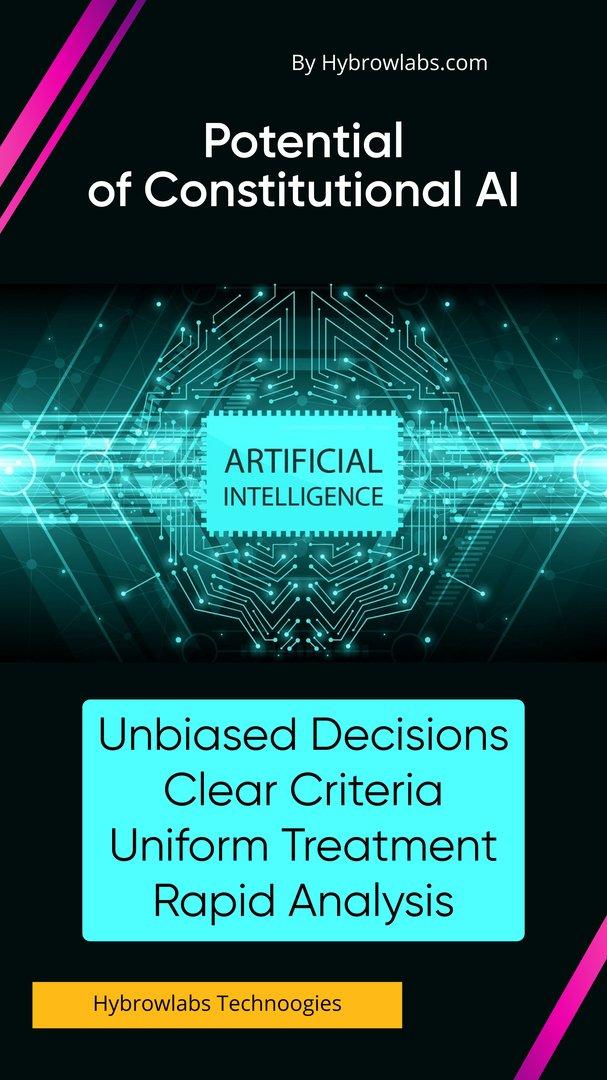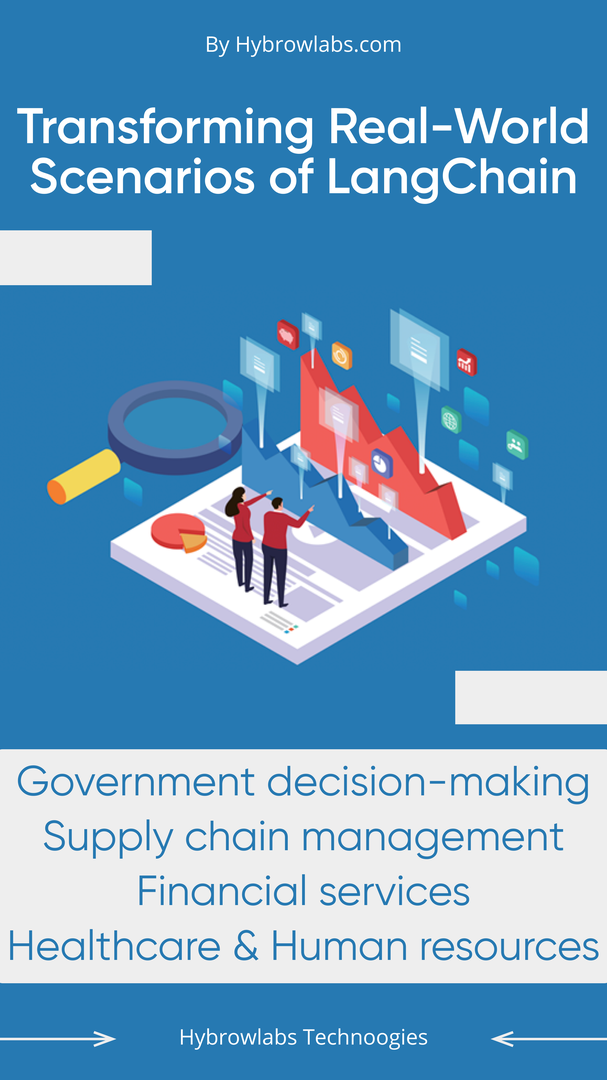
As the world becomes more reliant on technology, it is imperative to ensure that ethical and transparent decision-making is at the forefront of every organization's decision-making process. The use of Constitutional AI can be a powerful tool in ensuring that ethical and transparent decision-making is at the heart of an organization's culture.
Constitutional AI is a term used to describe the use of artificial intelligence in the context of ethical and transparent decision-making. The use of Constitutional AI can help organizations make more informed decisions and ensure that their decision-making process is fair and unbiased.
LangChain is one such platform that uses Constitutional AI to ensure ethical and transparent decision-making. LangChain is a decentralized platform that leverages blockchain technology to provide secure and transparent communication between individuals and organizations.
What is LangChain?

LangChain is a decentralized platform that provides a secure and transparent communication channel between individuals and organizations. LangChain leverages blockchain technology to ensure that all communication is secure and transparent, and that all parties involved in a communication chain have access to the same information.
Exploring some interesting features of LangChain:
Here are some features of LangChain:
- Decentralized: LangChain is decentralized, which means that there is no central authority controlling it. This makes it very secure and transparent.
- Secure: LangChain uses advanced cryptography to ensure that all communication is secure and cannot be intercepted by third parties.
- Transparent: LangChain ensures that all parties involved in a communication chain have access to the same information, making the communication process transparent.
- User-friendly: LangChain is designed to be user-friendly and easy to use, with a simple and intuitive interface.
- Scalable: LangChain can be used by organizations of any size, from small businesses to large corporations, making it a highly scalable platform.
Why is Ethical and Transparent Decision-Making Crucial for a Better Future?
Ethical and transparent decision-making is essential for the success of any organization. It ensures that the organization operates with integrity and gains the trust and respect of its stakeholders. Here are some examples of unethical decision-making, the importance of transparency in decision-making, and the consequences of unethical decision-making:
Examples of unethical decision-making:
- Misrepresenting financial information: Providing inaccurate or misleading financial information to stakeholders, such as investors or regulators.
- Discrimination: Making decisions that are discriminatory towards certain individuals or groups based on their race, gender, or other personal characteristics.
- Bribery: Offering or accepting bribes to gain an advantage in business or other areas.
Importance of transparency in decision-making:
- Builds trust: Transparency in decision-making builds trust among stakeholders, such as employees, customers, investors, and the public.
- Improves accountability: Transparent decision-making makes it easier to hold individuals and organizations accountable for their actions.
- Encourages better decision-making: Transparency encourages individuals to make better decisions because they know their decisions will be scrutinized by others.
Consequences of unethical decision-making:
- Loss of trust: Unethical decision-making can lead to a loss of trust among stakeholders, which can harm the organization's reputation and bottom line.
- Legal repercussions: Unethical decision-making can lead to legal action against individuals and organizations.
- Financial losses: Unethical decision-making can result in financial losses, such as fines, lawsuits, or loss of business.
Unlocking the Potential of Constitutional AI to Promote Ethical and Transparent Decision-Making:

Constitutional AI is a powerful tool for ensuring ethical and transparent decision-making. Constitutional AI is designed to ensure that decisions are made based on a set of predefined rules and principles, which can help to eliminate biases and ensure that decisions are fair and unbiased. Constitutional AI is also designed to be transparent, meaning that all parties involved in a decision-making process have access to the same information. This can help to ensure that decisions are made based on facts and data, rather than personal biases or opinions.
1. Objectivity:
Constitutional AI is designed to be objective, meaning that it makes decisions based on data and facts rather than personal biases or emotions. This helps to ensure that decisions are fair and unbiased.
For example, in the hiring process, using Constitutional AI can help eliminate bias based on race, gender, or other factors that can influence human decision-making.
2. Transparency:
Constitutional AI makes decisions based on clear and transparent criteria, making it easy to understand the decision-making process and hold individuals and organizations accountable for their actions. This helps to ensure that decisions are made in a way that is transparent and accountable.
For instance, if a bank uses Constitutional AI to decide whether to approve a loan application, the applicant can see the criteria used and understand the reasons for the decision.
3. Consistency:
Constitutional AI ensures consistency in decision-making, meaning that similar cases are treated in the same way. This helps to ensure that decisions are made fairly and without bias.
For example, a court using Constitutional AI to determine bail amounts would use consistent criteria based on the defendant's criminal history, rather than a judge's subjective opinion.
4. Efficiency:
Constitutional AI can analyze large amounts of data quickly and accurately, which means that decisions can be made in a timely and efficient manner. This can be especially important in situations where time is of the essence.
For instance, a hospital using Constitutional AI can prioritize patients based on their medical history and symptoms, helping to ensure that the most critical cases are treated first.
5. Fairness:
Constitutional AI can ensure that decisions are fair and equitable, taking into account the rights and interests of all stakeholders. This helps to ensure that decisions are made in a way that is fair to everyone involved.
For example, a government agency using Constitutional AI to allocate resources could consider the needs of different communities and distribute resources based on objective criteria.
6. Protection of rights:
Constitutional AI can help protect the rights of individuals and ensure that decisions are made in accordance with constitutional principles.
For instance, a court using Constitutional AI to determine whether a search warrant is valid could ensure that the warrant meets constitutional requirements.
Highlighting the Key Features of Ethical and Transparent Decision-Making in LangChain:

LangChain's platform has numerous features that support ethical and transparent decision-making. These include:
1. Smart contracts:
LangChain's platform uses smart contracts to ensure that all parties involved in a decision-making process have access to the same information. LangChain uses smart contracts to automate decision-making processes, which helps to ensure consistency and fairness.
For example, a smart contract could be used to automatically approve loan applications based on objective criteria, such as credit scores and income levels.
2. Decentralization:
LangChain's platform is designed to be decentralized, meaning that all communication is distributed across a network of computers. This ensures that all communication is secure and transparent, and that there is no single point of failure. Also it helps to prevent bias and ensures that decisions are made based on objective criteria.
For example, when it comes to validating language proficiency, LangChain uses a network of independent language experts to ensure fair and unbiased assessments.
3. Customization:
LangChain's platform is customizable, meaning that it can be tailored to the specific needs of an organization. This can help to ensure that an organization's decision-making process is aligned with its values and principles.
For instance, users can choose their preferred language learning method, whether it's through online lessons, in-person tutoring, or a combination of both.
4. Encryption and security:
LangChain uses encryption and other security measures to ensure that all communication is secure and private. This helps to protect sensitive information and prevent unauthorized access or tampering. LangChain's platform is designed to be secure, meaning that all communication is encrypted and secure.
For example, all user data is encrypted and stored on secure servers, and two-factor authentication is required to access sensitive information.
5. Immutable record-keeping and Public Audabiltiy
All communication on LangChain is recorded on a blockchain, which creates an immutable record of all decisions and actions taken. This helps to promote transparency and accountability, as all parties involved have access to the same information.
LangChain allows for public auditability of all communication and decision-making processes, which helps to ensure that decisions are made in accordance with ethical and legal principles.
For example, a government agency using LangChain to allocate resources could allow for public auditing to ensure that resources are distributed fairly and without bias.
6. User control:
LangChain puts users in control of their own data and communication, which helps to promote transparency and prevent abuse of power. Users can choose who they communicate with and what information they share, and can revoke access at any time.
For instance, users can choose to pause or cancel their lessons at any time, and they can also choose their preferred instructor based on their personal preferences and learning style.
LangChain and Constitutional AI: Transforming Real-World Scenarios:

1. Government decision-making:
LangChain and Constitutional AI can be used to promote ethical and transparent decision-making in government. For example, a government agency could use LangChain to allocate resources based on objective criteria, while Constitutional AI could help ensure that decisions are made in accordance with ethical and legal principles.
2. Supply chain management:
LangChain can be used to promote transparency and accountability in supply chain management. For example, a company could use LangChain to track the movement of goods from the manufacturer to the retailer, while Constitutional AI could help ensure that decisions are made in accordance with ethical and legal principles.
3. Financial services:
LangChain and Constitutional AI can be used to automate decision-making processes in financial services, while promoting transparency and fairness. For example, a bank could use LangChain and Constitutional AI to automatically approve or deny loan applications based on objective criteria, such as credit scores and income levels.
4. Healthcare:
LangChain and Constitutional AI can be used to promote transparency and accountability in healthcare. For example, a hospital could use LangChain to track the movement of medical supplies and ensure that they are being used ethically and efficiently, while Constitutional AI could help ensure that decisions related to patient care are made in accordance with ethical and legal principles.
5. Human resources:
LangChain and Constitutional AI can be used to promote fairness and transparency in human resources decision-making. For example, a company could use LangChain to track employee performance and make objective decisions about promotions and bonuses, while Constitutional AI could help ensure that decisions are made in accordance with ethical and legal principles.
Conclusion
In conclusion, LangChain's use of Constitutional AI, developed by Hybrowlabs Development Services, offers an innovative solution to ensuring ethical and transparent decision-making. The decentralized and secure platform enables organizations of any size to communicate transparently, providing all parties involved in a communication chain with access to the same information. Ethical and transparent decision-making is crucial for building trust among stakeholders and holding individuals and organizations accountable for their actions. Constitutional AI ensures objectivity, transparency, consistency, efficiency, and fairness in decision-making, making it a powerful tool in promoting ethical and transparent practices. With the increasing reliance on technology, the use of Constitutional AI is becoming more critical to ensuring that organizations operate with integrity, gain trust and respect of stakeholders, and avoid the serious consequences of unethical decision-making.
FAQ’s
1. How can LangChain be used for Constitutional AI?
LangChain can be used to facilitate communication between people who speak different languages, which can be especially useful in legal settings where interpreters are often needed. By using LangChain to ensure that all parties can understand each other, AI systems can be used to make decisions that are in line with the principles of the constitution or legal system.
2. What are some benefits of using Constitutional AI with LangChain?
Some benefits of using Constitutional AI with LangChain include increased transparency and accountability in decision-making processes, as well as greater accessibility to legal services for people who do not speak the language of the legal system. Additionally, by using AI systems that are designed to operate within the framework of a constitution, it is possible to ensure that decisions are made in accordance with legal principles and that they are fair and just.
3. How can concerns around privacy and data security be addressed when using LangChain for Constitutional AI?
To address concerns around privacy and data security when using LangChain for Constitutional AI, it is important to ensure that the platform has robust security measures in place, such as encryption and access controls. Additionally, it may be necessary to establish clear policies and guidelines around the collection, storage, and use of data on the platform, as well as to ensure that users are fully informed about these policies and their rights regarding their data.



610f9a.png)


a3dc85.jpg)

.jpg)
fd8f11.png)


.jpg)
.jpg)